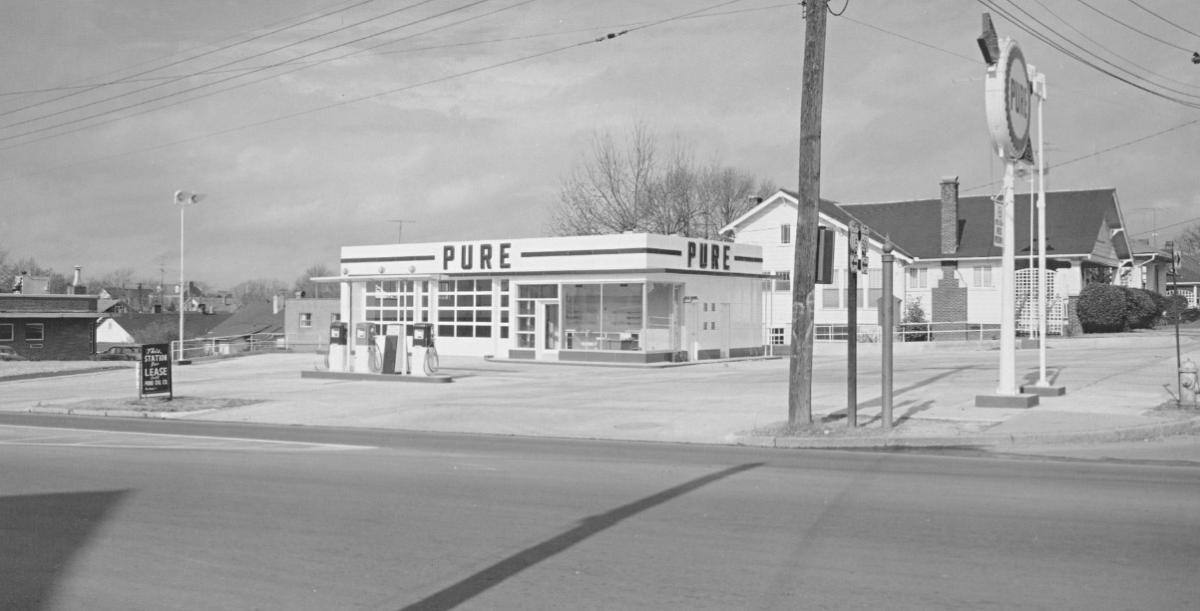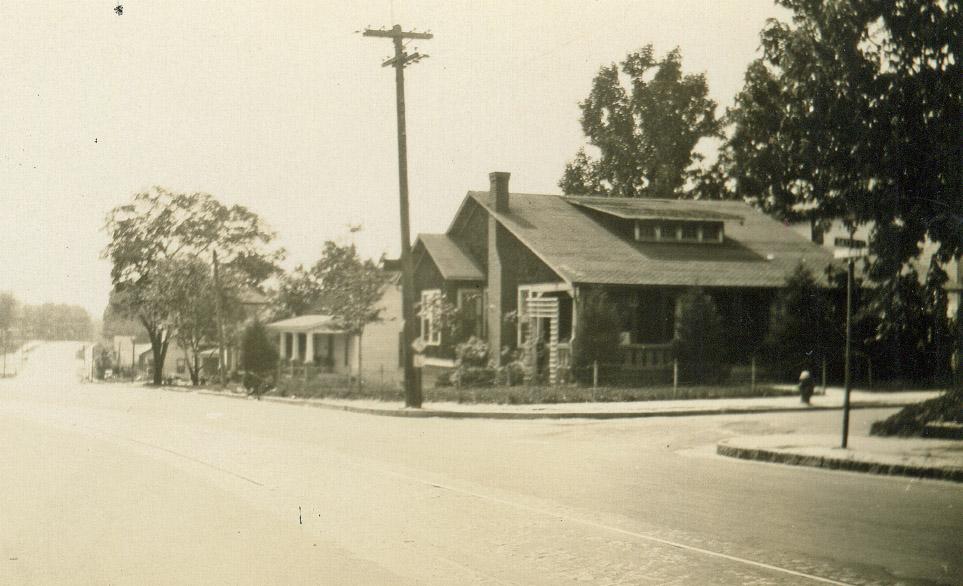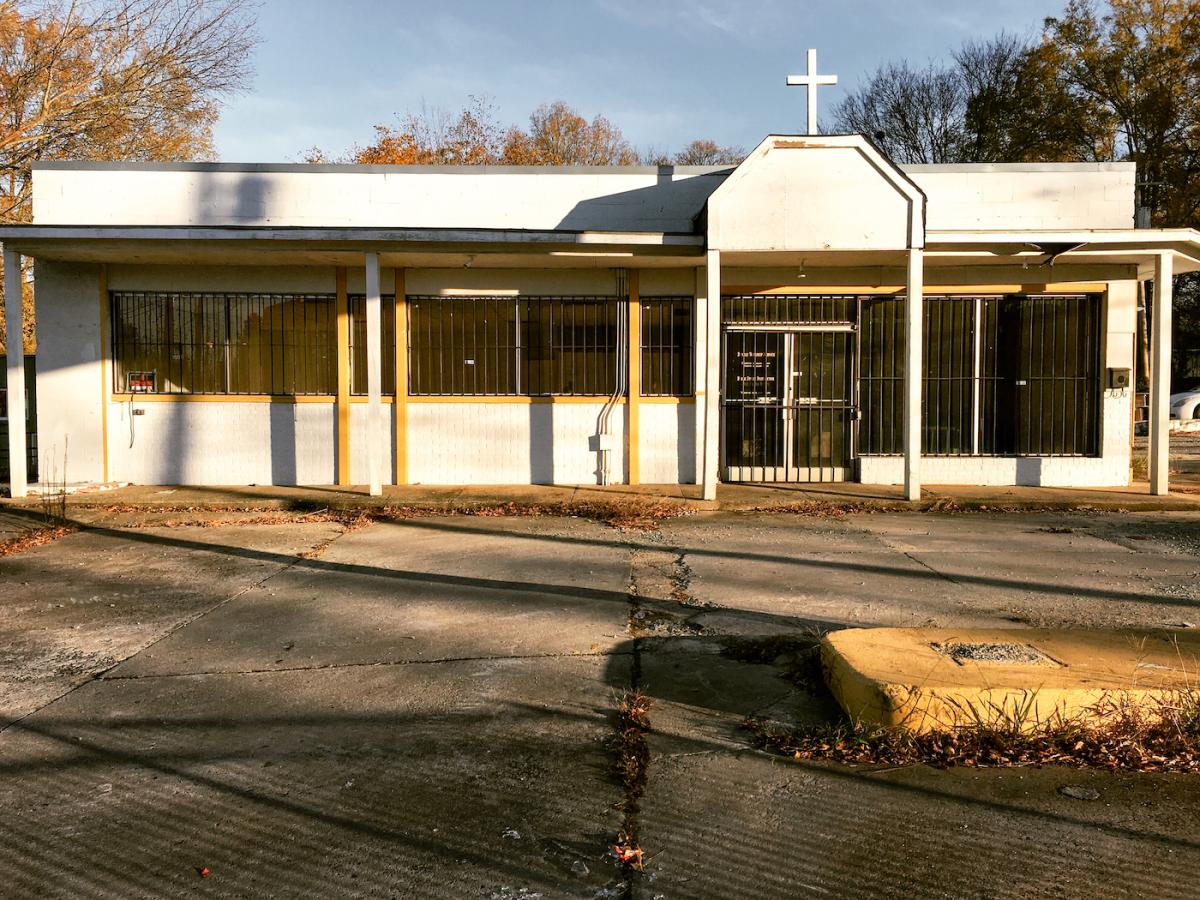The former Pure Oil service station at 1200 W. Chapel Hill Street had become a neighborhood liability and a likely candidate for demolition. Long-term leakage from underground fuel storage tanks and incidental surface spills had contaminated the soil around three sides of the building. Asbestos, peeling paint, and damage from years of water intrusion had compromised the roof structure.
Longtime West End residents Stacey Poston (a project manager at the City of Durham) and Wendy Woods (co-owner of Durham restaurants Nosh, Jo Rae Café, and Piper’s in the Park) have lived a few blocks from the site for more than twenty years. Looking at the derelict service station on the corner, they saw past the contamination and had a vision for what it could become. They saw an opportunity to invest in their own neighborhood and to create a family gathering place a short walk from their home. They partnered with Self Help Credit Union, Bunker Design Collaborative, Durham’s Ellen Cassilly Architect, and a team of other local designers, artists, and builders to acquire and repurpose the building.
After spending more than $60,000 on soil remediation through the North Carolina Division of Environmental Quality’s UST program, the team embarked on a plan to gut and rebuild the concrete block structure and adapt it for use as a restaurant. A nine-foot wide one-story kitchen and restroom addition wraps the north and west sides of the building while respecting its simple form and proportions. The exterior and the service station canopy were repaired and repainted. A new rooftop seating area and a covered patio, accessed from rollup garage doors, extend the use of the space and add much needed street level activity. The final result has a decidedly modern feel, one that complements the building’s original mid-century aesthetic.
Originally, the corner of W. Chapel Hill and Gattis Streets was occupied by a bungalow with a deep porch that fronted onto Gattis Street. Photos from the 1920s show that the north side of W. Chapel Hill Street was lined with homes. But for some reason, the houses at this end of the block did not last long. By 1956, the homes were gone and replaced with the commercial buildings that you see today.
08.01.2017 (BrianR)




Add new comment
Log in or register to post comments.